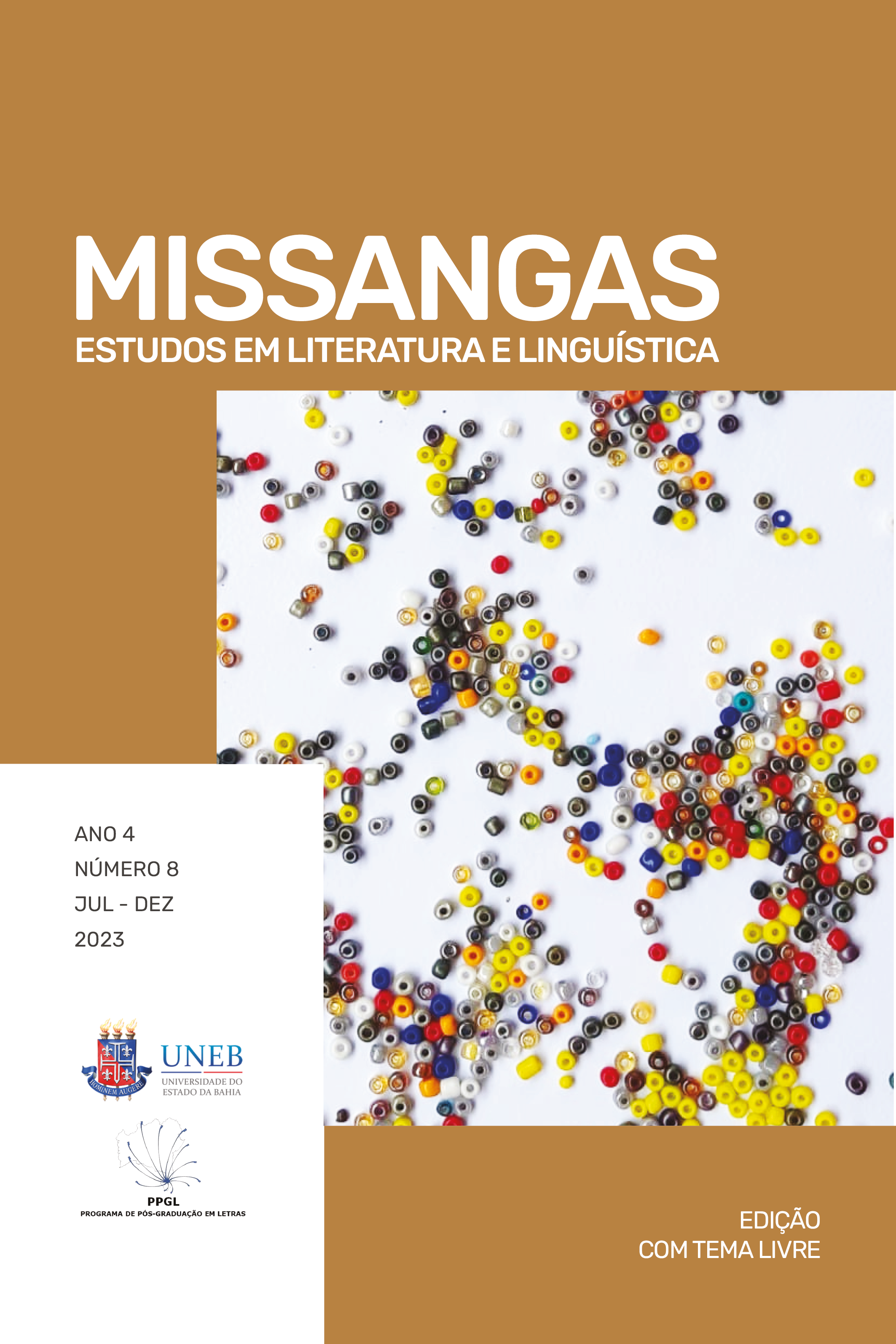LANGUAGE AND POLITICS
COGNITIVE-AFFECTIVE CROSS-CUTTING DIALOGUES IN THE PUBLIC SPHERE
DOI :
https://doi.org/10.53500/missangas.v4i8.17486Mots-clés :
Political Language, Cognitive-Affective Transversalities, Formation de Opinion, Identity Politics, Political PolarizationRésumé
This study aims to investigate the relationship between political language and cognitive-affective transversalities in the public sphere. Through a qualitative approach, combining documentary analysis, discourse analysis and literature review, we seek to understand how rhetorical strategies, aroused emotions, the use of political terms and narratives, polarization and the construction of political identity influence the formation of opinion, political behaviors and the maintenance or contestation of power structures in society. The corpus of analysis will consist of political speeches by political leaders, public pronouncements, interviews, debates and electoral campaigns, representing different political and ideological contexts. The discourse analysis will be conducted using a critical approach, identifying the discursive elements that arouse emotions and create affective connections with the public, as well as those that reinforce the division and antagonism between different political groups. The literature review will cover areas such as linguistics, political science, communication and cultural studies, seeking a theoretical basis for understanding political language and its repercussions. The results will be analyzed in the light of the reviewed literature, identifying trends, patterns and relevant conclusions.
Téléchargements
Références
BOYD, D.; ELLISON, N. B. Social Network Sites: Definition, History, and Scholarship. Journal of Computer-Mediated Communication, v. 13, n. 1, p. 210-230, 2008.
BUTLER, J. Notes Toward a Performative Theory of Assembly. Cambridge: Harvard University Press, 2015.
CASTELLS, M. Networks of indignation and hope: social movements in the age of the internet. Rio de Janeiro: Zahar, 2012.
CHOMSKY, Noam. Media Control: The Spectacular Achievements of Propaganda. Nova Iorque: Seven Stories Press, 1991.
CHOUliARAKI, L.; FAIRCLOUGH, N. Discourse in Late Modernity: Rethinking Critical Discourse Analysis. Edinburgh: Edinburgh University Press, 2017.
ENLI, G.; SKOGERBØ, E. Personalized Campaigns in Party-Centred Politics: Twitter and Facebook as Arenas for Political Communication. Information, Communication & Society, v. 16, n. 5, p. 757-774, 2013.
FAIRCLOUGH, N. Critical Discourse Analysis: The Critical Study of Language. 2nd ed. Abingdon: Routledge, 2017.
FAIRCLOUGH, N. Language and Power. 3rd ed. Abingdon: Routledge, 2015.
FOUCAULT, M. The Order of Discourse. São Paulo: Loyola Editions, 2014.
FRASER, N. Justice Interruptus: Critical Reflections on the "Postsocialist" Condition. New York: Routledge, 1997.
GOLDER, M.; STRAMSKI, J. Ideological Segregation among Online Collaborators: Evidence from Wikipedians. Social Science Quarterly, v. 98, n. 1, p. 163-187, 2017.
GRICE, H. P. Logic and conversation. In: COLE, P.; MORGAN, J. L. (Eds.). Syntax and Semantics. Volume 3: Speech Acts. Nova York: Academic Press, 1975.
HAWKINS, K. et al. The Mobilization of Resentment: Populism, Polarization, and the Politics of Emotion. British Journal of Political Science, v. 49, n. 4, p. 1045-1070, 2019.
HOOKS, B. Teaching to Transgress: Education as the Practice of Freedom. New York: Routledge, 2015.
JOHNSON, M. A. The Power of Political Language: How Rhetoric Shapes Identity. Cambridge: Cambridge University Press, 2020.
JOHNSON, Mark. Online Politics: Embracing New Possibilities or Reinforcing Old Divides? Political Science Quarterly, v. 135, n. 1, 2020.
KING JR., M. L. I Have a Dream. Available at: http://www.americanrhetoric.com/speeches/mlkihaveadream.htm. 1963. Accessed: 22 May 2023.
KRUIKEMEIER, S. et al. Using Twitter to Mobilize Protest Action: Online Mobilization Patterns and Action Repertoires in the Occupy Wall Street, Indignados, and Aganaktismenoi Movements. Information, Communication & Society, v. 22, n. 2, p. 162-181, 2019.
LAKOFF, G. Don't Think of an Elephant!: Know Your Values and Frame the Debate. Vermont: Chelsea Green Publishing, 2004.
LILLEKER, D. G.; JACKSON, N. Towards an Information Age Electoral Manifesto: A Road Map for Digital Election Communication Research. Journal of Information Technology & Politics, v. 13, n. 2, p. 184-196, 2016.
MAIA, R. P. The Political Language of Feminism: The Case of the Women for Peace Movement. Journal of Feminist Studies, v. 26, n. 1, p. 177-199, 2018.
MARCUS, G. E. et al. Fear and Loathing across Party Lines: New Evidence on Group Polarization. American Journal of Political Science, v. 62, n. 1, p. 34-49, 2018.
MATEUS, S. et al. Electoral Discourse in the 2015 Portuguese Legislative Elections: A Content Analysis. Journal of Language and Politics, v. 17, n. 2, p. 171-191, 2018.
MUTZ, D. C. Status Threat, Not Economic Hardship, Explains the 2016 Presidential Vote. Proceedings of the National Academy of Sciences, v. 115, n. 19, p. E4330-E4339, 2018.
NUSSBAUM, M. C. Anger and Forgiveness: Resentment, Generosity, Justice. New York: Oxford University Press, 2016.
OBAMA, B. Democratic National Convention Keynote Address. 2004. Available in: https://obamawhitehouse.archives.gov/blog/2012/06/28/president-obama-iowa-then-and-now. Accessed: 18 May 2023.
PERELMAN, C. Treatise on Argumentation: The New Rhetoric. São Paulo: Martins Fontes, 2009.
PETERSEN, M. B. et al. Trumping Hate? How Threats of Violent Consequences Shape Support for Donald Trump. Journal of Experimental Political Science, v. 6, n. 4, p. 312-319, 2019.
SMITH, J. Political Narratives and the Production of Legitimacy: Discourse, Identity, and Power in US Congressional Debates. New York: Routledge, 2018.
SMITH, Jane. Emotional Politics: How Feelings Shape the Political Sphere. Chicago: University of Chicago Press, 2018.
SOUSA, C. S. A. de. The construction of political identity: contributions from Political Psychology. Psychology & Society, v. 31, e181475, 2019.
SOUSA, Pedro. Polarization and Populism: A Linguistic Perspective. Discourse & Society, v. 30, n. 1, 2019.
SUNSTEIN, C. R. #Republic: Divided Democracy in the Age of Social Media. Princeton: Princeton University Press, 2017.
TINDALE, C. W. Fallacies and Argument Appraisal. Cambridge: Cambridge University Press, 2004.
TUFEKCI, Z. Twitter and Tear Gas: The Power and Fragility of Networked Protest. New Haven: Yale University Press, 2017.
VAN DIJK, T. A. Discourse and Power. São Paulo: Context, 2008.
VAN HAUWAERT, S. M.; KROUWEL, A. The Effect of Online Populism and Political Sophistication on Euroscepticism: Evidence from a Dutch Online Panel. European Journal of Political Research, v. 59, n. 2, p. 344-366, 2020.
ZÚÑIGA, H. G. et al. Emotional News, Issue Importance, and Political Participation. Communication Research, v. 44, n. 1, p. 84-107, 2017.
Téléchargements
Publié-e
Numéro
Rubrique
Licence
Os artigos publicados na revista Missangas são de inteira responsabilidade de seus autores e não refletem, necessariamente, o pensamento dos editores.











